The conflict raging in Gaza is different this time.
While Hamas' rocket attacks and Israel's military actions may look familiar, they're taking place against a whole new backdrop.
"This is unprecedented in
the history of the Arab-Israeli conflict," says CNN's Ali Younes, an
analyst who has covered the region for decades. "Most Arab states are
actively supporting Israel against the Palestinians -- and not even shy
about it or doing it discreetly."
It's a "joint
Arab-Israeli war consisting of Egypt, Jordan, Saudi Arabia against other
Arabs -- the Palestinians as represented by Hamas."
As the New York Times put it, "Arab leaders, viewing Hamas as worse than Israel, stay silent."
(CNN) --
If the Gaza truce holds and Israel's Operation Protective Edge comes to its conclusion, some things are certain.
Both Israel and Hamas
will declare military victory
-- Israel pointing to the destruction of
militants' tunnels and depletion of Hamas' rocket supply;
-- Hamas pointing
to dozens of dead Israeli troops and the survival of Hamas leadership
in Gaza.
But unlike in previous
conflicts, when Hamas had the support of many Arab nations, things have
changed. This time, as CNN has reported, the fighting between Israel and
Hamas has been a proxy war for the Mideast.
Key regional players
Jordan, Egypt and Saudi Arabia have their own reasons to want to fend
off the Muslim Brotherhood, of which Hamas is part, experts say. And
Europe, like the United States, lists Hamas as a terrorist organization
for its numerous attacks on civilians.
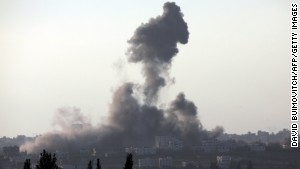 The Middle East: A region in turmoil
The Middle East: A region in turmoil
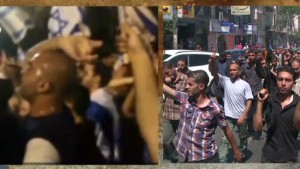 In Israel and Gaza, a war against peace
In Israel and Gaza, a war against peace
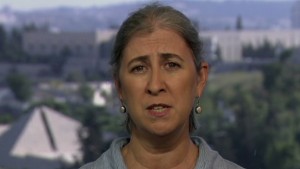 Red Cross tours Gaza destruction
Red Cross tours Gaza destruction
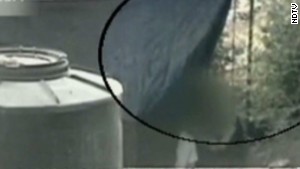 Does this video prove Hamas strategy?
Does this video prove Hamas strategy?
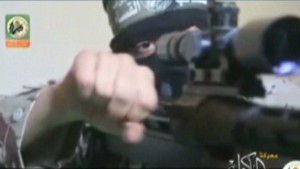 Is Gaza 'Mission Accomplished' for Israel?
Is Gaza 'Mission Accomplished' for Israel?
But the group does have the support of some countries.
"It's no longer the
Muslims against the Jews," said Danielle Pletka, vice president of
foreign and defense policy studies at the American Enterprise Institute.
"Now it's the extremists -- the Muslim Brotherhood, Hamas, Hezbollah,
and their backers Iran, Qatar and Turkey -- against Israel and the more
moderate Muslims including Jordan, Egypt, and Saudi Arabia."
A look at some key Hamas supporters:
Turkey
Prime Minister Recep Tayyip Erdogan openly supports Hamas.
"Erdogan has tried to
use the cause of the Brotherhood to bolster his own Islamist credentials
at home," says Eric Trager, of the Washington Institute for Near East
Policy.
Turkey also has "more of an ideological sympathy with the Brotherhood," Trager says.
Qatar
Qatar supported the
Muslim Brotherhood in Egypt -- which was toppled from power in a coup
last year. Qatar funds many Muslim Brotherhood figures in exile,
including Hamas political leader Khaled Meshaal, who is believed to have
orchestrated numerous terrorist attacks.
"Qatar has a long
history of providing shelter to Islamist groups, amongst them the Muslim
Brotherhood and the Taliban," Shashank Joshi of the Royal United
Services Institute tells Time.
Advocating for Hamas is
beneficial to Turkey and Qatar in their political objectives because the
cause draws popular support at home, says world affairs writer Frida
Ghitis in a CNN.com column.
It's no longer the Muslims against the Jews.
Now it's the
extremists -- the Muslim Brotherhood, Hamas, Hezbollah, and their
backers Iran, Qatar and Turkey -- against Israel and the more moderate
Muslims including Jordan, Egypt, and Saudi Arabia.
Danielle Pletka, American Enterprise Institute
Danielle Pletka, American Enterprise Institute
But some question
whether Qatar's support still is for Hamas is still strong. The
country's financial support to the group "largely dried up" as Qatar
sought "to mend ties with its neighbors, with whom it had fallen out in
part for backing the Muslim Brotherhood in Egypt," the Council on
Foreign Relations said.
While Qatar and Turkey
are powerful allies, "Hamas might wish for more support given the
breadth of the Arab world," Time reported.
Iran and Syria
In the past, Iran and Syria supported Hamas. Iran supplied the group with weapons; Syria was home to Meshaal.
But Meshaal did not
support Syrian President Bashar al-Assad in the country's civil war.
In
2012, Meshaal left for Qatar, causing a breakdown in his relationship
with both Syria and its ally Iran, says Firas Abi Ali, head of Middle
East and North Africa Country Risk and Forecasting at the global
information company IHS.
And while Iran still
professes to support Hamas, such claims "are more ostentatious, showy,
exaggerated and theatrical rather than genuine and practical," writes
Majid Rafizadeh, an Iranian-American scholar at Harvard University, in a
column for al Arabiya.
Iran, which is a Muslim
but not an Arab nation, "uses Hamas (as well as Tehran's support for the
Palestinian cause) as a tool to project its power and influence in the
Arab world," he argues.
The Council on Foreign
Relations says Iran, while cutting its funding to Hamas in recent years,
"sought to bolster its ties to other resistance groups in the region,
such as Islamic Jihad."
Hezbollah
The Lebanese militant group based in Lebanon is aligned with al-Assad's regime in Syria. During the conflict, Hezbollah reached out to Hamas, praising its "steadfastness."
This does not mean the
relationship is repaired to where it stood before Syria's civil war, but
"a new realignment might happen," Farwaz Gerges of the London School of
Economics told Time.
Popular support
Hamas' greatest support
in the wake of the conflict with Israel may be from the public in Gaza
and other parts of the Arab world.
"Hamas is not a monolith, nor is it only a terrorist group," Ed Husain of the Council on Foreign Relations writes on CNN.com.
"It is a social movement, with a mass membership, a popular message of
resistance that resonates across the Muslim world, and a political party
with which we must negotiate."
Some analysts believe
Hamas will emerge stronger from the fight with Israel. The conflict
"will only further radicalize the Palestinian population -- and alienate
frustrated friends in the United States," Mark Perry of Foreign Policy argues.
Before Operation Protective Edge, a poll
by the Washington Institute for Near East Policy found that most
Palestinians in Gaza oppose a two-state solution and want to work toward
abolishing Israel -- a goal that is in line with Hamas' charter.
But the poll also found most Palestinians support nonviolent methods of achieving their goals.
Support could affect arms supply
While Hamas' recruitment
might soar now, militarily the group "is on the ropes," with tunnels
destroyed and much of its rocket supply depleted, writes Rick Francona, retired U.S. Air Force intelligence officer and CNN military analyst.
"After similar conflicts
in the past, Hamas has been rearmed and resupplied by its supporters,
primarily Iran and to some extent Syria. The most efficient method for
the rearming and resupply effort has been via the large number of
smuggling tunnels between Gaza and Egypt's Sinai Peninsula.
"That is not likely to
be the case this time -- another blow to Hamas, which it must factor in
to its assessment of this conflict as well as its future planning."

